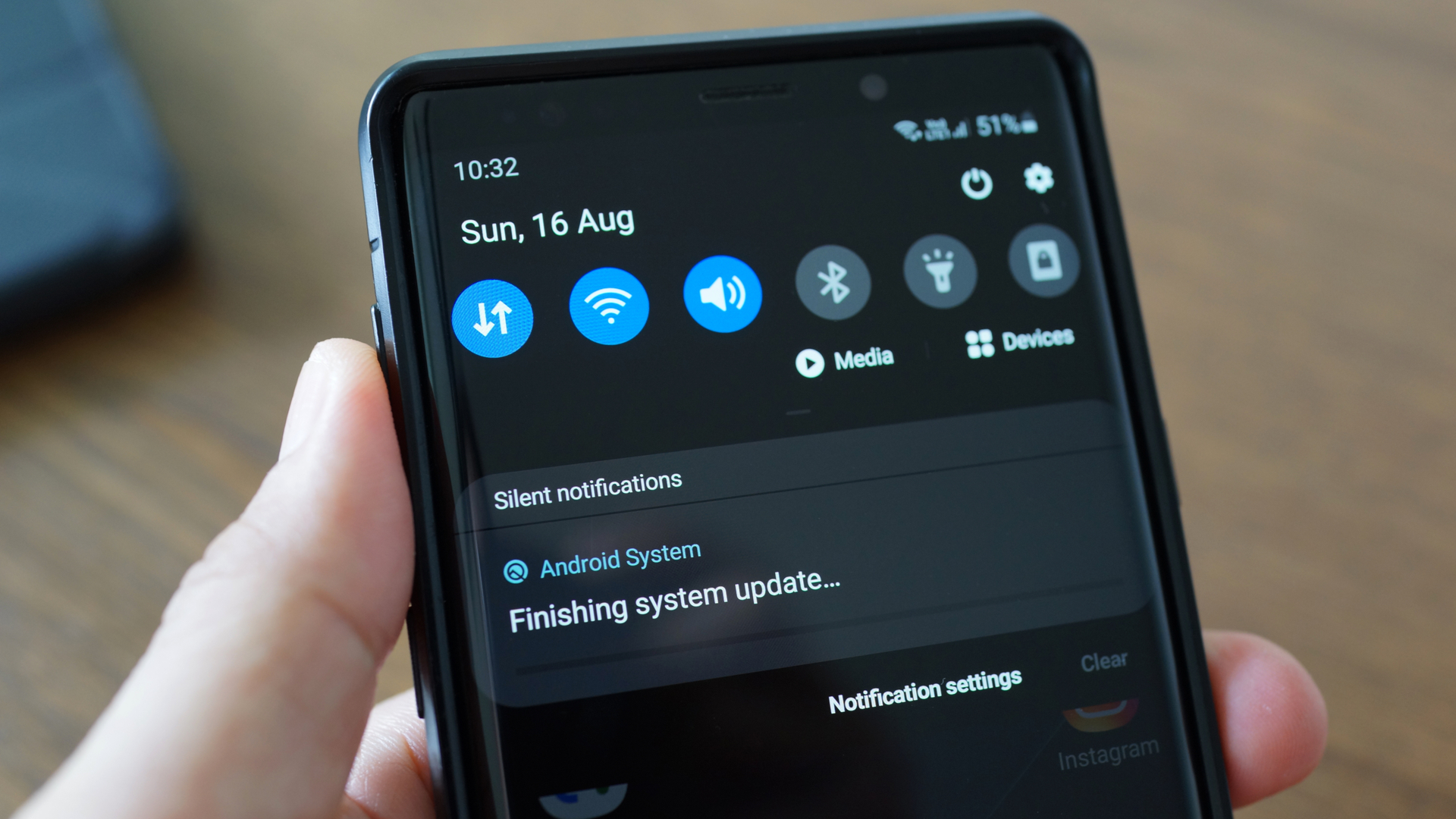Android spyware disguised as 'system update' app discovered
This malware strain steals private messaging and location data while also recording phone calls


A sophisticated strain of malware capable of stealing user data from infected Android devices is masquerading as the System Update application.
The malicious mobile app, which functions as a Remote Access Trojan (RAT), is part of a sophisticated spyware campaign that has the ability to record audio from devices, take photos, and access WhatsApp messages, according to Zimperium researchers.
Once installed, it registers with its own Firebase command and control (C&C) server, normally used by legitimate Android developers, as well as a second independent C&C server, to send across an initial cache of information. This includes information about whether WhatsApp is installed or not, battery percentage, storage stats, and other information. It can only be installed from a third party store and not the Google Play store.
The malware then receives commands to initiate various actions such as the recording of audio from the microphone or data exfiltration. Researchers have also discovered the malware is capable of inspecting web browsing data, stealing images and videos, monitoring GPS locations, stealing phone contacts and call logs, and exfiltrating device information.
The device also asks permission to enable accessibility services, and abuses this to collect conversations and message details from WhatsApp by scraping the content on the screen after detecting whether the user is accessing the messaging service.
It hides by concealing the icon from the device’s main menu or app drawer, while also posing as the legitimate System Update app to avoid suspicion. When the device’s screen is turned off, the spyware creates a ‘searching for updates’ notification using the Firebase messaging service which allows it to generate push notifications.
The spyware’s functionality is triggered under various conditions, including when a new contact is added, a new text message is received or a new application installed. It does so by exploiting Android’s receivers including ‘contentObserver’ and ‘Broadcast’, which allows communication between the device and the server.
Get the ITPro daily newsletter
Sign up today and you will receive a free copy of our Future Focus 2025 report - the leading guidance on AI, cybersecurity and other IT challenges as per 700+ senior executives
The Firebase messaging service is only used to initiate malicious functions, such as audio recording or data exfiltration, by sending commands to infected devices. The data itself is then collected by the second dedicated C&C server.
The spyware also only collects up-to-date information, with a refresh rate of roughly five minutes for location and networking data. The same applies to photos taken using the device’s camera, but the value is instead set to 40 minutes.
Researchers have so far been unable to determine who is behind the campaign, or whether the hackers are trying to target specific users. Given this spyware can only be downloaded outside of the Google Play store, users are strongly advised not to download applications to their phones from unsafe third-party sources.

Keumars Afifi-Sabet is a writer and editor that specialises in public sector, cyber security, and cloud computing. He first joined ITPro as a staff writer in April 2018 and eventually became its Features Editor. Although a regular contributor to other tech sites in the past, these days you will find Keumars on LiveScience, where he runs its Technology section.
-
 Bigger salaries, more burnout: Is the CISO role in crisis?
Bigger salaries, more burnout: Is the CISO role in crisis?In-depth CISOs are more stressed than ever before – but why is this and what can be done?
By Kate O'Flaherty Published
-
 Cheap cyber crime kits can be bought on the dark web for less than $25
Cheap cyber crime kits can be bought on the dark web for less than $25News Research from NordVPN shows phishing kits are now widely available on the dark web and via messaging apps like Telegram, and are often selling for less than $25.
By Emma Woollacott Published
-
 Greek intelligence allegedly uses Predator spyware to wiretap Facebook security staffer
Greek intelligence allegedly uses Predator spyware to wiretap Facebook security stafferNews The employee’s device was infected through a link pretending to confirm a vaccination appointment
By Zach Marzouk Published
-
 North Korean-linked Gmail spyware 'SHARPEXT' harvesting sensitive email content
North Korean-linked Gmail spyware 'SHARPEXT' harvesting sensitive email contentNews The insidious software exfiltrates all mail and attachments, researchers warn, putting sensitive documents at risk
By Rory Bathgate Published
-
 Young hacker faces 20-year prison sentence for creating prolific Imminent Monitor RAT
Young hacker faces 20-year prison sentence for creating prolific Imminent Monitor RATNews He created the RAT when he was aged just 15 and is estimated to have netted around $400,000 from the sale of it over six years
By Connor Jones Published
-
 European company unmasked as cyber mercenary group with ties to Russia
European company unmasked as cyber mercenary group with ties to RussiaNews The company that's similar to NSO Group has been active since 2016 and has used different zero-days in Windows and Adobe products to infect victims with powerful, evasive spyware
By Connor Jones Published
-
 Mysterious MacOS spyware discovered using public cloud storage as its control server
Mysterious MacOS spyware discovered using public cloud storage as its control serverNews Researchers have warned that little is known about the 'CloudMensis' malware, including how it is distributed and who is behind it
By Rory Bathgate Published
-
 Apple launching Lockdown Mode with iOS 16 to guard against Pegasus-style spyware
Apple launching Lockdown Mode with iOS 16 to guard against Pegasus-style spywareNews Apple breaks its bug bounty record with $2 million top prize, alongside $10 million grant funding, as it launches industry-first protections for highly targeted individuals
By Connor Jones Published
-
 El Salvador becomes latest target of Pegasus spyware
El Salvador becomes latest target of Pegasus spywareNews The list of nations with access to Pegasus is growing, with evidence pointing to potential links between 35 confirmed Pegasus cases and the Salvadoran government
By Connor Jones Published
-
 Egyptian exiles targeted with Predator spyware resembling NSO Group's Pegasus
Egyptian exiles targeted with Predator spyware resembling NSO Group's PegasusNews A high-profile politician and journalist have been targeted with spyware likely spread using WhatsApp messages
By Connor Jones Published